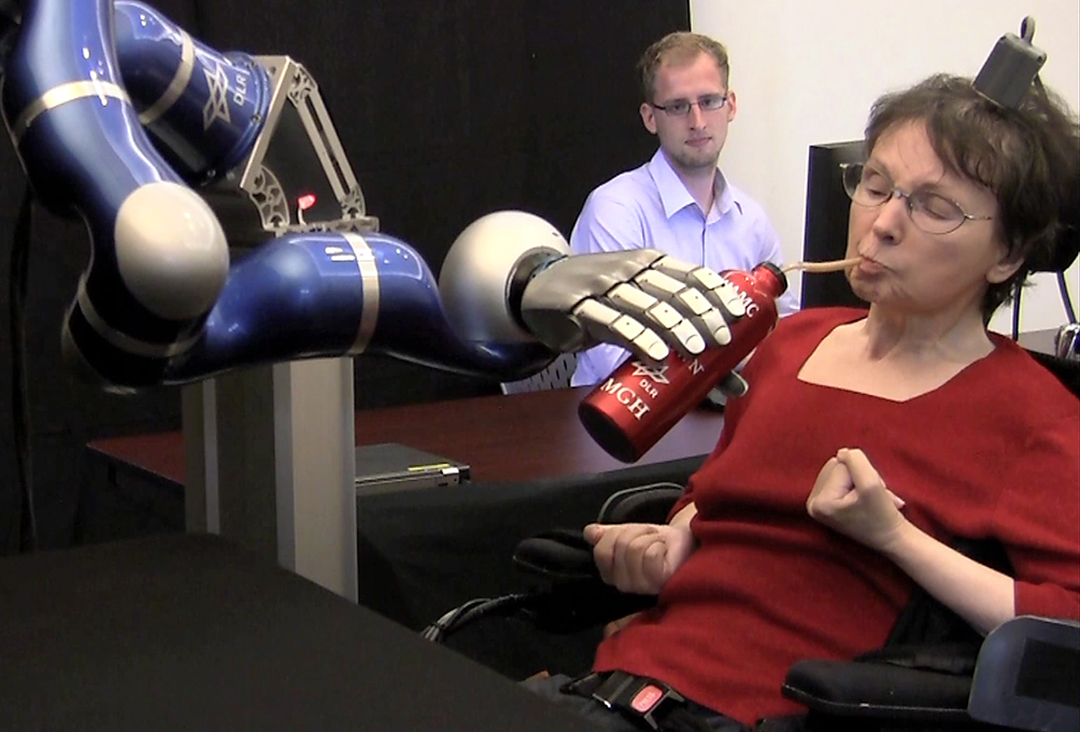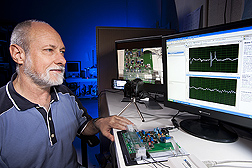Thought-Controlled Robot
Two patients with near-total paralysis have learned to control a robotic arm with their thoughts.


Two patients with near-total paralysis have learned to control a robotic arm with their thoughts.


Researchers have estimated the total number of Emperor Penguins in Antarctica using satellite images.
Researchers are designing faster, smaller circuits that use light instead of electricity.

GERMS & PEOPLE - Does opening the windows spread germs around? Why health-related websites may be scaring people unnecessarily. And, how the heart burns fat.

A combination of smartphones, GPS and radar could help the blind navigate the cities of the future.

ALL ABOUT LANGUAGE - Neuroscientists are beginning to reconstruct what we've heard by listening to brainwaves, how scientists measure language delays around the world, using technology to keep endangered languages vibrant, and a musical instrument that allows you to sing...with your hands, Also: decoding the secret language of worms.
Scientists are beginning to reconstruct the words people hear based on electrical activity in their brains.
Playing certain types of video games can improve the vision of people who were born with cataracts.
Sociologists analyzed Twitter posts to track daily and seasonal mood swings around the world.
A computer algorithm partially reconstructs movies from patterns of brain activity in people watching them.

HORMONES & BEHAVIOR - Testosterone and fatherhood, the genetics of oxytocin and depression, gender and spatial reasoning revisited, where taste is found in the brain, and more.
Computer scientists used football footage to develop a sophisticated kind of artificial intelligence.

FEAR, LIES & SHRINKING BRAINS - Why our brains shrink, but chimps' don't, why computers are better at spotting lies than we are, and an enzyme for fear. Also, medical electronics that resemble tattoos, and how organic chicken farms could be a boon to public health.
Zebra stripes resemble barcodes, and could help researchers keep track of each member of the herd.

An automatic insect detection system that uses a variety of technologies could help monitor insect infestations.
New research lets people with severe disabilities rapidly switch between different communication and assistive devices.
